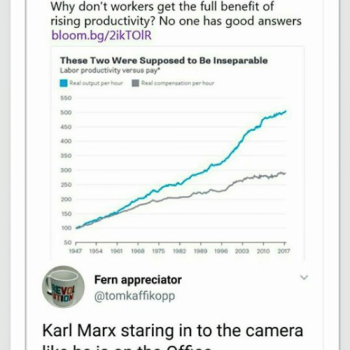
Photo credit: kevin dooley via Foter.com / CC BY
During the 2016 Democratic presidential primary, US Senator Bernie Sanders (I-Vt.) repeatedly raised the issue of money in politics; that is, the fact that corporations, billionaires, and special interests are allowed by law to spend essentially unlimited amounts of money on their preferred candidates, having a measurable influence on our elections.
The root of the problem lies with two supreme court decisions, Buckley v. Valeo in 1976, and Citizens United v. FEC in 2010. The reasoning behind both decisions rests on the idea that money and spending are protected under the first amendment’s provision of free speech. Essentially, money is speech.
Now to any reasoning being, that idea is ridiculous at its face. If money is speech, then some people are born with more speech than others. By making a quantifiable resource into speech, you are creating a form of speech that supersedes all other forms of speech and effectively rendering the speech of poor people meaningless. That is not democracy.
Now I want to be very clear: this “money in politics” issue has mainly benefited the Republican Party; the GOP has the reputation of being the “business party” so it makes sense that businesses would want to support them.
But a great deception has taken place around the discussions of this issue, and that is that somehow the Democrats are innocent, that this is a Republican problem, that liberals are somehow “more free” from corporate influence.
This is nowhere more evident than among the Democratic frontrunner, former Secretary of State, Senator, and First Lady Hillary Clinton. Her opponent repeatedly hit her for her Super-PACs, donations from lobbyists, and private speeches to Wall Street banks and other firms, for which she was paid hundreds of thousands of dollars at a time. If you actually believe that a Clinton administration will do anything to solve this issue, you’re dreaming.
The problem, however, is not unique to Clinton. Democratic congresspeople and senators have benefited from (and thus become beholden to) corporate donors as well. Many of these corporations give out equal amounts of money to both parties.
Now first of all, I want to dispel the notion once and for all that these corporate interests give out money for no financial reason at all, as some have tried to claim. Anyone who believes that really doesn’t understand business. Nobody gives away millions of dollars for their health. These corporations want something.
This leads us into a chicken-and-egg question over whether the corporations donate money specifically to influence a politician, or in order to ensure that a politician that is favorable to them stays in office. I don’t want to have that argument; I’ll take the middle road and say that it’s a combination of both/and on a case-by-case basis. The point is that these businesses see political expenditures as an investment, and whether the return is access, favorable votes on legislation, or something else, nobody can deny that the Democrats are also guilty of taking this money.
Some people might be wondering why this is such a huge problem. After all, the Democrats have paid lip service to overturning Citizens United, and many have spoken out against the system (even as they’ve benefited from it). Their argument is that yes, the system is bad, but they have to play the game in order to win it. Republicans certainly aren’t going to do anything about it, so we must elect Democrats who will change it. Those Democrats need to take corporate money in order to have a fighting chance.
Barney Frank summarizes his party’s side of the issue by frequently claiming that to not take corporate money would be to “unilaterally disarm.”
Says Frank in an interview with TYT’s Jordan Chariton: “I get big donations from banks…I don’t believe that people on the left should engage in unilateral disarmament. Is it really your goal to have us all lose?”
When they use that defense, I can’t help but think of Batman. Specifically Christian Bale’s Batman in Christopher Nolan’s 2005 film Batman Begins, which codified the modern superhero movie.
There’s a scene in that film that I love, near the beginning. Bruce Wayne has almost completed his ninja training under Liam Neeson’s Ra’s al Ghul, and is told that to truly graduate, he must execute a criminal. He refuses.
“Your compassion is a weakness your enemies will not share,” Ra’s al Ghul tells him.
Here is Bruce Wayne’s magnificent reply: “That’s why it’s so important. It separates us from them.”
Do you see where I’m going with this?
People like Barney Frank don’t want to weaken the Democratic Party by refusing corrupting corporate donations. To them, the central issues are power and winning. This has, unfortunately, become the dominant attitude among the Democratic Party.
So I ask: how are they different from the Republicans who they claim are the “real” enemies in this debate? What good has lip service ever done anyone?
My issue is philosophical, but now that Bernie Sanders has proven that you can compete spending-wise without relying on big-money interests, and congressman Alan Grayson in Florida has successfully used this model on a smaller scale, there is a practical aspect of it as well.
I am a member of Wolf-PAC and I was arrested with Democracy Spring fighting against money in politics. This is the most pressing issue of our time, because nothing else can be achieved through our political process as long as money is speech. The sad reality is that both major political parties are complicit, and neither can be relied on to solve this problem.
Finally, to answer Barney Frank: yes, I do want the Democrats to “unilaterally disarm,” if that’s the phrase you insist on using.
Batman doesn’t use guns. Why should you?












